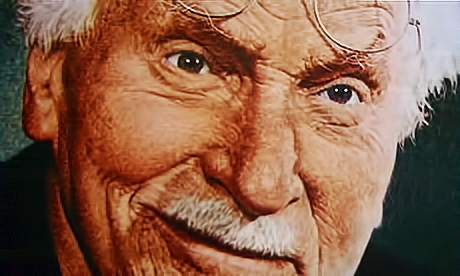Carl Jung thought psychology could offer a language for grappling with moral ambiguities in an age of spiritual crisis.
In 1959, two years before his death, Jung was interviewed for the BBC television programme Face to Face. The presenter, John Freeman, asked the elderly sage if he now believed in God. “Now?” Jung replied, paused and smiled. “Difficult to answer. I know. I don’t need to believe, I know.”
What did he mean? Perhaps several things.
He had spent much of the second half of his life exploring what it is to live during a period of spiritual crisis. It is manifest in the widespread search for meaning – a peculiar characteristic of the modern age: our medieval and ancient forebears showed few signs of it, if anything suffering from an excess of meaning. The crisis stems from the cultural convulsion triggered by the decline of religion in Europe. “Are we not plunging continually,” Nietzsche has the “madman” ask when he announces the death of God. “Is not the greatness of this deed too great for us?”
Jung read Nietzsche and agreed that it was. The slaughter of two world wars and, as if that were not enough, the subsequent proliferation of nuclear weaponry were signs of a civilisation swept along by unconscious tides that religion, like a network of dykes, once helped contain. “A secret unrest gnaws at the roots of our being,” he wrote, an unrest that yearns for the divine. Nietzsche agreed that God still existed as a psychic reality too: “We godless anti-metaphysicians still take our fire … from the flame lit by a faith that is thousands of years old.” And now the flame is out of control.
The sense of threat – real and imagined – that Jung witnessed during his lifetime has not lessened.
Read more of Carl Jung: Religion and the search for meaning
Source
- Image: Celebtown (cached)
